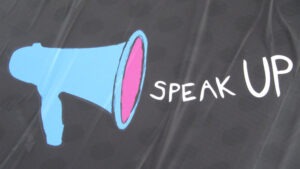July 1, 2016; Southern Maryland Online
NPQ readers know that our nonprofit news reporting has long covered the fundraising practices of organizations that claim to benefit first responders and veterans. These practices exist along a continuum that runs from excellent to a “gray zone” to outright fraudulent—and even those at the far end of fraudulent can be difficult to stop in the current regulatory environment.
In February of this year, the Washington Post reported on a cease-and-desist order issued to a fly-by-night operation soliciting funds for veterans services in Maryland. The group’s fundraising was largely done on the street, outside of grocery stores. At that time, Maryland’s secretary of state and attorney general’s offices alleged that the Southern Maryland Veterans Association, which is not listed on GuideStar, would not or could not account for its donations and it was ordered it to stop raising money.
Reportedly in response to a number of complaints, the secretary of state’s Charities and Legal Services Division, aided by the Office of the Attorney General, began an investigation that discovered the organization was not providing veterans with housing assistance as it claimed in its own marketing materials, nor was it registered with the secretary of state.
In the course of the investigation, a former manager of the group, Norman Randolph McDonald, was arrested in January on suspicion of stealing donations meant for veterans. Dan Brashear, who leads the organization, said he thought McDonald had filed the necessary paperwork for the charity to operate, but Brashear’s own credibility may be in question. As the paper reports:
Sign up for our free newsletters
Subscribe to NPQ's newsletters to have our top stories delivered directly to your inbox.
By signing up, you agree to our privacy policy and terms of use, and to receive messages from NPQ and our partners.
Brashear said he wanted to help veterans when he got out of prison in 2012 after serving 22 years for killing his then-girlfriend. His first charity venture in Western Maryland ran into financial problems, and an assistant accused him of misusing funds, Brashear said.
On July 1st, Maryland Attorney General Brian E. Frosh and Secretary of State John C. Wobensmith announced a final decision in the case against both the group and Brashear, finding multiple violations of the Maryland Solicitations Act, including misleading potential donors to a charitable organization, using false and misleading advertising in connection with a solicitation, and failing to register with the secretary of state before soliciting.
“I applaud the Secretary of State’s final decision in this case,” said Attorney General Frosh. “This case highlights why strong enforcement is needed to safeguard the generosity of Maryland donors and legitimate veterans charities.”
“A charity that cannot show it operates within the law will not be permitted to solicit charitable donations,” said Secretary of State Wobensmith. “This decision is a victory for those who were misled and mistreated by this organization.”—Ruth McCambridge












